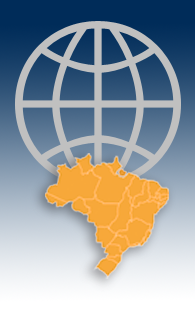Presentation
INCT in Public Policies, Strategies and Development
Institutions: UFRJ, UFF, UFJF, UFRRJ, UNICAMP, IESP
INCT PPED Objectives
• To contribute to the renewal of the conceptual and instrumental public action committed to development,
• To provide a locus for discussion and studies on varieties of capitalism, government and firms innovative strategies, biodiversity and governance.
INCT PPED Theoretical Approach
• To innovate on the interpretation of the situation in progress – through the conceptual theory known as “varieties of capitalism”;
• To analyze - in the light of the literature on institutions and of the evolutionary perspective, on one hand, and the analysis of social networks, on the other hand - the technological trajectories, the innovation process, and institutional changes, giving special attention to biofuel policy and the role of intellectual property rights;
• To understand and interpret from an interdisciplinary and intersectorial perspective in which ways environmental policies will interact with the other development policies.
INCT PPED Actions and dimensions
The project comprehends a set of large impact actions towards the following dimensions:
• Research and interpretation;
• Qualification and capacity building, through education and student production;
• Comprehensive diffusion of research’s results;
• Consolidate links among the various networks (national and international), in which INCT/PPED participants (professors) already represent academic leaderships;
• The commitment to observe, understand the dilemmas and discuss the critical aspects of political arena, in order to subsidize the implementation of developing policies.
INCT PPED Research perspectives
Research Perspective 1: State, Varieties of Capitalism and Development Policies in Emerging Countries.
The objective of this research perspective is to analyze, in the light of the literature on varieties of capitalism, and based on the institutionalist approach, the path taken by certain emerging countries in Latin-America and Asia towards development;
Research Perspective 2: Public Policies, Institutions and Technological Dynamics.
The objectives of this research perspective are: (i) to link the new dynamics of agribusiness with institutional change and public policies; (ii) to understand the relationship between catching-up and intellectual property in Agriculture – a case study of knowledge governance; (iii) to combine the lens of policies, institutions and interest conflicts in the analysis of the National Program of Production and Biodiesel Use.
Research Perspective 3: Biodiversity, Natural and Cultural Resources.
The objectives of this research perspective are to initiate a conceptual discussion which includes the public environmental policy applied perspective, in order to better understand the governmental priorities when faced to international commitments . It includes a theoretical and methodological issue, which concerns the interfaces, and in some cases, the divergences, of environmental policies with the other government policies, including, for example, rural development policy, tourism, energy, scientific and technological development, just to mention those present in the proposed projects.
